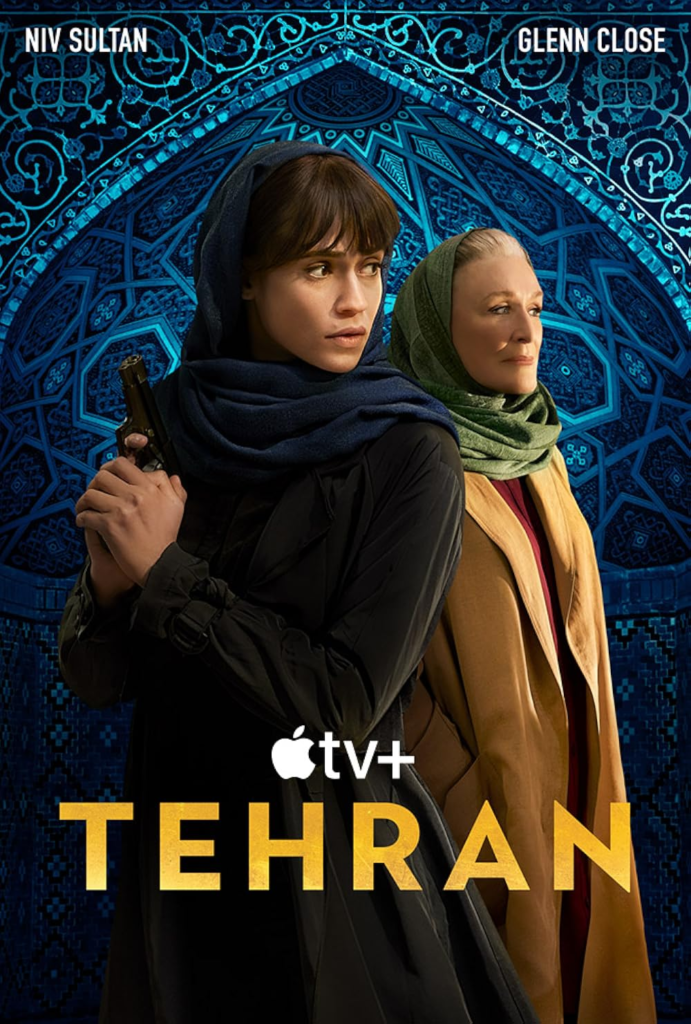Tehran Christian Review

It’s not every day that you find a spy thriller that manages to deliver heart-pounding tension while exploring deeper questions about identity, culture, and morality. Tehran, an Apple TV+ series that places its viewers in the tangled web of international espionage between Israel and Iran, does just that. But how does it hold up from a Christian perspective? And more importantly, what does it invite us to ponder about the nature of loyalty, identity, and the human soul?
A Suspenseful World of Intrigue and Humanity
Right from the opening moments, Tehran immerses you in a dangerous world where one misstep could mean disaster. The show’s protagonist, Tamar, is no James Bond clone. She’s a Mossad agent with a specific mission: disable Iran’s air defense systems to allow an Israeli airstrike. Yet, what begins as a seemingly straightforward mission quickly unravels into something far more complex.
As Tamar navigates the perilous streets of Tehran, her journey reveals more than just a series of close calls and daring escapes. Beneath the tension lies a story deeply rooted in questions of cultural identity and personal conflict. For Tamar, who has Iranian roots, returning to this country is both a mission and a confrontation with a part of herself she’s long kept buried. It’s a dual narrative—one of espionage and one of introspection—that adds depth to the show’s relentless pace.
And yet, as Christians watching Tamar’s struggles, we’re invited to think beyond the plot. How often do we wrestle with our own sense of identity? Are we defined by where we come from, by the roles we play, or by something greater? Galatians 2:20 reminds us: “I have been crucified with Christ and I no longer live, but Christ lives in me.” Tamar’s journey—though not explicitly spiritual—mirrors the universal human longing for clarity about who we truly are.
Espionage as a Mirror for Moral Complexity
Tehran thrives on its ability to blur the lines between hero and villain. While Tamar works for Mossad, her Iranian adversaries are not one-dimensional caricatures. Far from it. The show’s depiction of Iranian intelligence officer Faraz Kamali, for example, is layered and empathetic. Played masterfully by Shaun Toub, Kamali is a man driven not just by duty but by love for his family. He’s not evil; he’s human.
This nuanced portrayal challenges viewers to question the simplistic binaries we’re often fed by mainstream narratives. For Christians, it’s a sobering reminder that “our struggle is not against flesh and blood” (Ephesians 6:12). People on opposing sides of a conflict are often more alike than they’d care to admit, and their actions are shaped by circumstances beyond their control.
But what about the moral ambiguity inherent in espionage? Tamar’s actions—deception, manipulation, even violence—raise thorny ethical questions. Can the ends ever justify the means? In Romans 3:8, Paul rejects the idea of doing evil so that good may result, yet Tamar’s world doesn’t allow for such clear distinctions. It’s a world where survival often trumps morality, and where loyalty to a cause can demand sacrifices that weigh heavily on the soul.
A Story Rooted in Cultural Richness
One of Tehran’s most compelling aspects is its portrayal of Iranian culture. The show avoids the pitfall of reducing Iran to a mere backdrop for Western heroics. Instead, it offers a vibrant, multifaceted view of life in Tehran, from the bustling marketplaces to the tension-filled offices of its government operatives.
For American audiences, this portrayal is both refreshing and challenging. We’re used to seeing Iran depicted as monolithic and hostile, yet Tehran breaks down those stereotypes. It invites viewers to see the humanity in a country often vilified in Western media. And isn’t that what we’re called to do as Christians—to see people as God sees them, not as adversaries but as individuals made in His image?
The use of Farsi and Hebrew, alongside English, further enhances the show’s authenticity. It’s a reminder of the beauty and complexity of language—a gift from God that reflects the diversity of His creation. As viewers, we’re invited to step out of our comfort zones and engage with a story that doesn’t cater to us but instead asks us to meet it on its own terms.
The Tension Between Duty and Humanity
As Tamar’s mission unfolds, the tension between her duty as a Mossad agent and her growing connection to the people of Tehran becomes palpable. This inner conflict reaches a boiling point as she faces impossible choices. Should she remain loyal to her mission, or should she act on her newfound empathy for those she’s supposed to undermine?
This struggle is a poignant reflection of the human condition. How often are we torn between what we feel obligated to do and what our hearts tell us is right? For Christians, this tension is particularly resonant. We’re called to live by the Spirit, yet we’re also bound by the realities of a fallen world. Tamar’s story, while fictional, echoes the real-life challenges of balancing conviction with compassion.
Violence, Suspense, and the Need for Discernment
Like any thriller, Tehran doesn’t shy away from depicting violence and high-stakes drama. While the show is far from gratuitous, it’s undeniably intense. For some viewers, this level of tension may be too much. Philippians 4:8 encourages us to focus on what is pure, lovely, and praiseworthy, and it’s worth considering how Tehran fits into that framework.
That said, the show’s violence isn’t glorified. It’s portrayed as a consequence of a broken world, a reminder of the cost of conflict. For Christians, this can serve as a prompt for prayer—for peace, for reconciliation, and for those caught in the crossfire of geopolitical struggles.
Overcoming Barriers to Understanding
One of Tehran’s greatest strengths is its ability to draw viewers into a story that’s both foreign and familiar. As Bong Joon-ho famously said, overcoming the “one-inch tall barrier of subtitles” opens up a world of art and perspective. For American viewers, Tehran offers a glimpse into lives and experiences far removed from our own.
But more than that, it’s a reminder of our shared humanity. The cultural specifics may differ, but the emotions—fear, love, hope—are universal. As Christians, this recognition can deepen our empathy and inspire us to pray for those we’ll never meet but who share the same struggles and longings.
Final Thoughts: A Journey Worth Taking
Tehran is not just a thriller; it’s a story that challenges, provokes, and engages on multiple levels. It’s a tale of espionage, yes, but also of identity, morality, and the human condition. For Christians, it’s an opportunity to reflect on what it means to live faithfully in a complex world.
Rating: 8/10
With its gripping narrative, nuanced characters, and rich cultural tapestry, Tehran is a show that’s both entertaining and thought-provoking. It’s not without its challenges, but for those willing to engage thoughtfully, it offers a rewarding experience that lingers long after the final credits roll.




